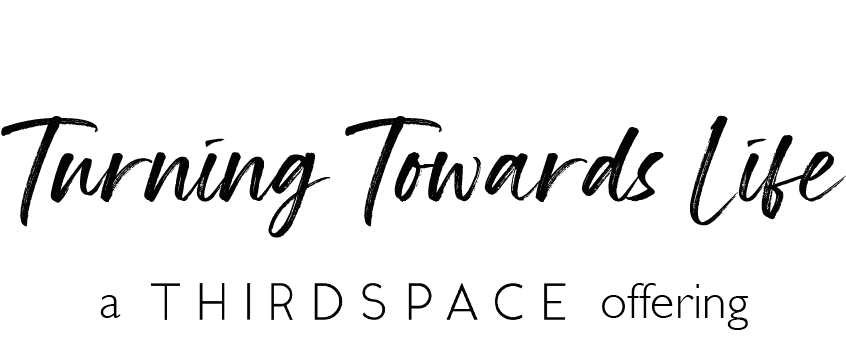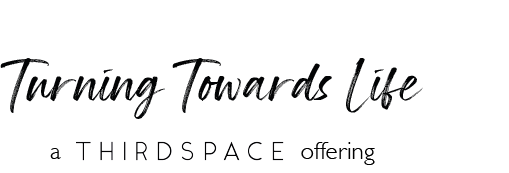Transforming Our Wounds, Episode 31
In our 'Turning Towards Life' conversation of Sunday, 6th May 2018, Lizzie and I talked about what to do with the pain we experience in life. What does it take, we wondered, for us to work with all the ways we got wounded (inevitably) in a way that can be a gift to others and not a source of further wounding? And what does it take to accept how little control we have over life (and how much we want!) in a way that's not a kind of giving up?
We also explore what it is to be intimate with our own experience, and to take responsibility in a way that acknowledges that while we have very little power over many things, we still have enormous power to shape how we respond.
The source is for our conversation is from the Jesuit writer and teacher Fr. Richard Rohr.
Transforming Our Pain
Pain teaches a most counterintuitive thing: we must go down before we even know what up is. In terms of the ego, most religions teach in some way that all must “die before they die.” Suffering of some sort seems to be the only thing strong enough to both destabilize and reveal our arrogance, our separateness, and our lack of compassion. I define suffering very simply as “whenever you are not in control.” Suffering is the most effective way whereby humans learn to trust, allow, and give up control to Another Source. I wish there were a different answer, but Jesus reveals on the cross both the path and the price of full transformation into the divine.
When religion cannot find a meaning for human suffering, human beings far too often become cynical, bitter, negative, and blaming. Healthy religion, almost without realizing it, shows us what to do with our pain, with the absurd, the tragic, the nonsensical, the unjust. If we do not transform our pain, we will most assuredly transmit it. If we cannot find a way to make our wounds into sacred wounds, we invariably give up on life and humanity. I am afraid there are bitter and blaming people everywhere, both inside and outside of the church. As they go through life, the hurts, disappointments, betrayals, abandonments, and the burden of their own sinfulness and brokenness all pile up, and they do not know how to deal with all this negativity. This is what we need to be “saved” from.
If there isn’t some way to find some deeper meaning to our suffering, to find that God is somehow in it, and can even use it for good, we will normally close up and close down. The natural movement of the small self or ego is to protect itself so as not to be hurt again. Neuroscience now shows us that we attach to negativity “like Velcro” unless we intentionally develop another neural path like forgiveness or letting go”.

